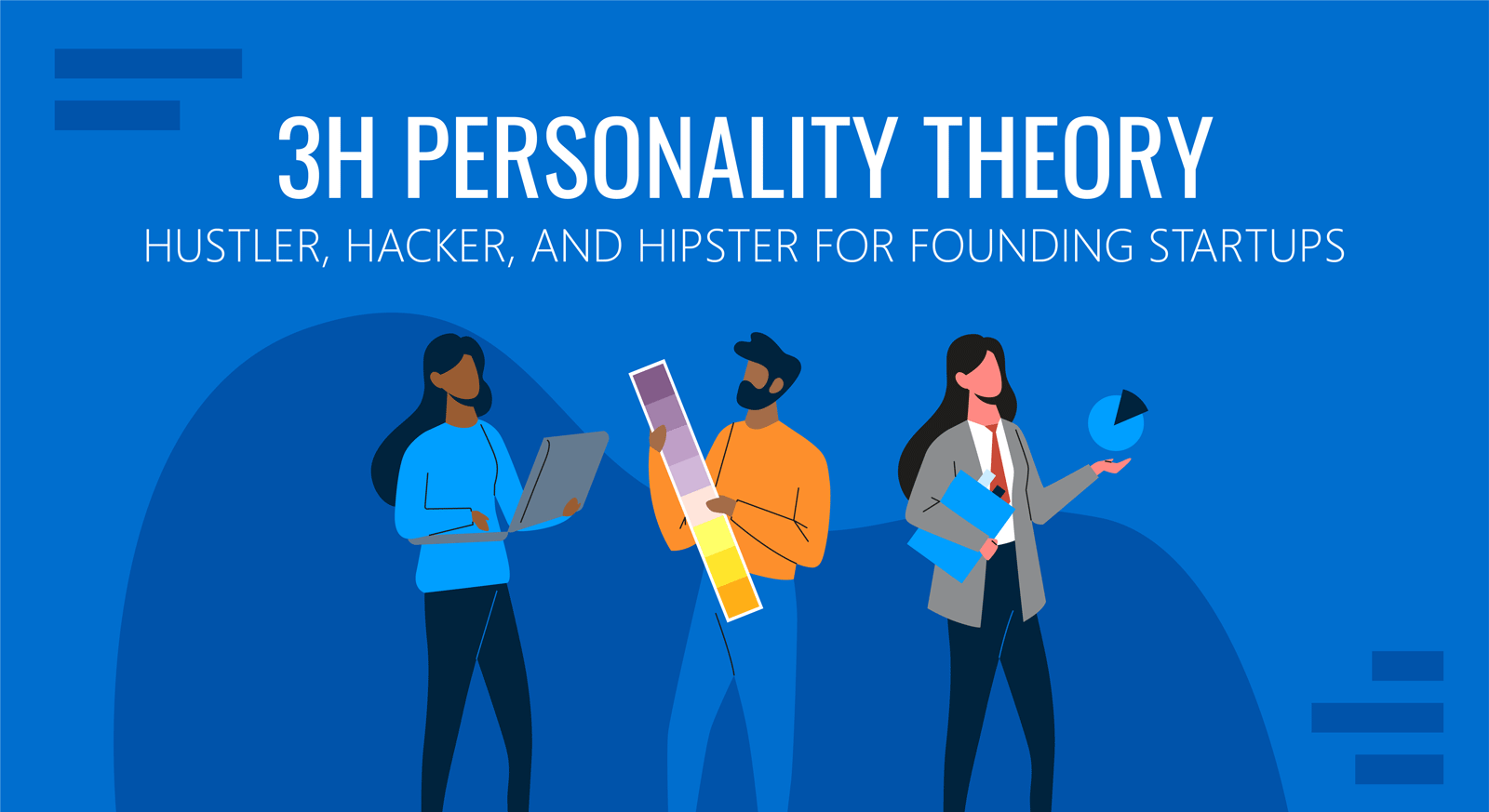
Behind the success of any startup is the founding team that takes a great idea and transforms it into a successful business.
Especially in the tech business, a popular concept first coined by Rei Inamoto, AKQA’s Chief Technology Officer, called the 3H personality theory combines complementary skillsets for forming a startup founding team, critical for building and scaling a startup.
In this article, we elaborate on the 3H personality types, mention some recent examples, analyze an alternative theory, and in the end, describe how to build the dream team.
Minimum Viable Team (MVT)
Minimum Viable Team (MVT) is a concept for startups to have a minimum team with selected skillsets required to begin business operations. A concept termed by researchers Frank Noiyrigat and Marc Nager, MVR focuses on helping founders figure out the people they need to build their company.
3H Theory: Hustler, Hacker, and Hipster
The 3H theory describes that a minimum viable team should include a hustler, hacker, and hipster. In Rei Inamoto’s own words, “to run an efficient team, you only need three people: a hipster, a hacker, and a hustler.”
Let’s see what these 3H personalities mean:
Hustler:

A hustler is basically the chief salesman who moves the idea forward by driving business sales. The go-to businessman that generates leads makes deals and gets it all done. They know how to face rejections, who to sell the products to, and what will keep the business ticking over.
Example:
Chief Operating Officer (COO) of Facebook, Sheryl Sandberg, is an American businesswoman who achieved success through her networking skills. Being an economics graduate from Harvard, Sheryl was awarded placements in the US Department of Treasury and even Google. In 2007, she met Mark Zuckerberg, the co-founder of Facebook, at a Christmas party, and soon in 2008, she was hired as the COO of Facebook.
Hacker

The Hacker is the one who develops the new technology for the business, builds new product prototypes, and works on product development. Also known as the back-end, front-end, or even full-stack developer, the hacker can create algorithms, build intellectual properties and develop new technologies for customers.
Example:
The co-founder of Microsoft and an American Business Magnate, Bill Gates, is the perfect example of a hacker who co-founded Microsoft. He partnered with his childhood friend, Paul Allen, to build a BASIC interpreter for MITS. Later on, they named their partnership Microsoft and launched the first retail version of Microsoft Windows in 1985, which revolutionized the computer industry.
Hipster

The hipster makes the products look market-ready. Designer and creative genius behind the products, who develops product design while being true to the brand for delivering a satisfactory customer experience. The hipster makes the products look market-ready. The hipster makes sure the product details are authentic and marketable.
Example:
Chief Design Officer (CDO) of Apple, Jony Ive, is a true hipster and known as the creative genius and designer of Apple’s most successful products. Termed as the “Spiritual Partner” of the late Steve Jobs, the co-founder of Apple, Ive worked as a long-term designer with Steve Jobs as he shared his aesthetic and design inspirations. Tim Cook, the CEO of Apple, called Jony Ive “the driving force between the look and feel of our products.”
Combining the 3H Personality Types
Combining the hacker, hustler, and the hipster, an effective team is formed to build a startup, where the hipster brings creativity and design factors, the hacker creates the technologies, and the hustler makes sure the business generates leads and revenue.

The hacker focuses on the building aspect of the products, the hipster focuses on creating an attractive and user-friendly outlook and appearance, while the hustler effectively packages everything, takes it to the target audience, and results in sales, partnerships, and profitable deals.
An Alternative Perspective to 3H Model
The combination is effective in transforming a business idea into a successful startup. However, an alternative perspective adds another personality type called the analyst.
The analyst understands customer needs through research and analysis. Product market fit, and promotion strategy need to be assessed before proceeding with the sales.
This approach argues that many startups lose out on getting and understanding actual customer feedback that can help adjust product development and promotional strategies.
The analyst sees the data and interprets it to address problems and result in better customer satisfaction. It is critical for any project’s success that the right questions are asked, data is gathered, and most importantly, an accurate analysis is performed of the data collected.
This alternative perspective is also called the 4h personality theory. The fourth H is the hound, who focuses on discovering what the users need and helps the hacker, hustler, and hipster present a solution that solves their problems.
Example:
Meredith Whitney, Chief Financial Officer (CFO) of Kindbody and businesswoman. She is popularly known for her prediction of Citibank’s need to raise capital in 2007, which became true during the opening event of the global financial crisis of 2008.
Whitney was hailed as the Oracle of Wallstreet for her prediction of Citigroup’s difficulties. She became one of the most popular female analysts on Wall Street, who earned recognition from Fortune Magazine as one of the “50 Most Powerful Women”. Time Magazine also recognized her as one of the “100 Most Influential People in the World” in 2009.
Conclusion
In conclusion, for the founding team of a startup, a specific set of skills is required to execute the plans effectively and ensure success. This does not mean that you need exactly three people for forming a startup founding team.
But rather the skills can be possessed by the two people or even a one. While it is also true that a single person cannot run a business, and to scale a startup forming a team of several people is crucial to its success.
The question lies if the core founding team possesses all skills of the hacker, hustler, and hipster. If not, then the framework helps build a co-founding team to effectively cover the required skillset and increase the chances of a startup’s success.


